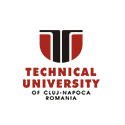Research topics

Optimized and systematic energy management on electric/hybrid vehicles
Limited fossil energy sources are a global problem affecting the individual and urban mobility. In order to overcome these limitations alternative energy sources and vehicle concepts are currently under intense investigation. Enhanced efforts are being done to reduce the energy consumption in EV/HEV in order to improve the battery range and to extend their lifecycle and to reduce the fuel consumption. In both EVs and HEVs the vehicle energy management plays an important role in managing the energy flow and increasing the energy efficiency. Onboard generators for recharging the battery pack and extending the range are more and more important for vehicle OEMs, as they represent a cheap and efficient way to generate electricity.
Next generation technologies for renewable electricity
There is growing interest in renewable energy around the world, as it offers the opportunity to contribute to a number of important sustainable development goals: energy access, energy security and climate change mitigation and the reduction of environmental impact of fossil-based energy systems. Access to modern and affordable energy services is among the essential ingredients of economic development and requires a balanced energy portfolio sustained by the rapid recent growth in solar, wind, geothermal, biomass, wave energy, coupled with on-going technology improvements and cost reductions. The integration of renewable energy generators has great impacts on the operation of the grid and calls for new grid infrastructure. Indeed, it is a main driver to develop the smart grid for infrastructure modernization. Micro-grids are part of the Smart City. They enhance livability and workability through added resiliency and reliability, and sustainability through renewables and reduced transmission and distribution losses. Modern power electronic converters allow wide flexibility of operating conditions, with respect to both the ranges of controlled variables, such as the voltage or frequency, and to the rates of change of those variables.
Fault-tolerant electromechanical systems
The fault tolerant (FT) design of electromechanical systems has to assure, as possible, unchanged output also in case of diverse fault occurrence. This feature is very important in the case of safety-critical applications, as aeronautics, medicine, defence, automotive, power conversion, advanced manufacturing systems, etc., where loss of life, injuries, environmental disasters or huge financial losses must be totally avoided. This can be achieved only if all the three basic components of an electromechanical system are designed to be FT at component level, and if an overall fault tolerant control scheme governs the entire equipment at system level. Due to the large variety of electrical machines and drives there are a lot of possibilities to improve their fault tolerance. Most of the proposed FT machine topologies have modified special winding schemes with diverse connections possibilities between the coils, or independent supply control of the phases. The modular construction approach of the machine and drive is very promising in this field. The used control strategies have to enable an effective reconfiguring of all the components of the electromechanical system in a way to mask the detected faults and their effects on the system's behaviour.
Efficient Lightweight Electro-Magnetic Propulsion System for Electric Vehicles (ELIMPUS)
"Young Team - TE" project no. 30/2015... (read more)Automotive Low-Noise Electrical Machines and Drives Optimal Design and Development (ALNEMAD)
Partnerships Programme - Joint Applied Research Projects... (read more)Hardware-in-the-Loop Modular Platform for Testing the Energy Management of Competitive & Highly-Efficient Hybrid-Electric Vehicles (HiTECH-HEV)
Partnerships Programme - Joint Applied Research Projects... (read more)Coupled Electromagnetic Interferences and Vibration Analysis for Safe Automotive Electrical Actuators (CEMIVA)
Partnerships Programme - Joint Applied Research Projects... (read more)



